Sure, babies are bundles of joy … they're also huge, tangled, tear-your-hair-out wads of mystery, too. Yet believe it or not, their constant crying, atrocious sleep habits, and other peculiarities are not an attempt to turn your life upside down. In fact, scientists have studied baby behavior and found an internal logic (or at least some good theories) to explain all that addles you.
Read on and you may not only sleep better, you'll also understand your baby a whole lot better.
Did you know #4? Pretty cool, huh?
Image © Lisa Petkau/First Light/Corbis
Why Are There No Tears When Babies Cry?

Babies are born without fully developed tear ducts, so when they cry, the waterworks can't kick in, says Deena Blanchard, MD, a pediatrician at Premier Pediatrics NY. But they will soon enough: tear ducts continue to develop after birth so that by 3 months, plenty of tears will accompany all that wailing. So keep the Kleenex handy!
Why Do Babies Have Such a Hard Time Going to Sleep?
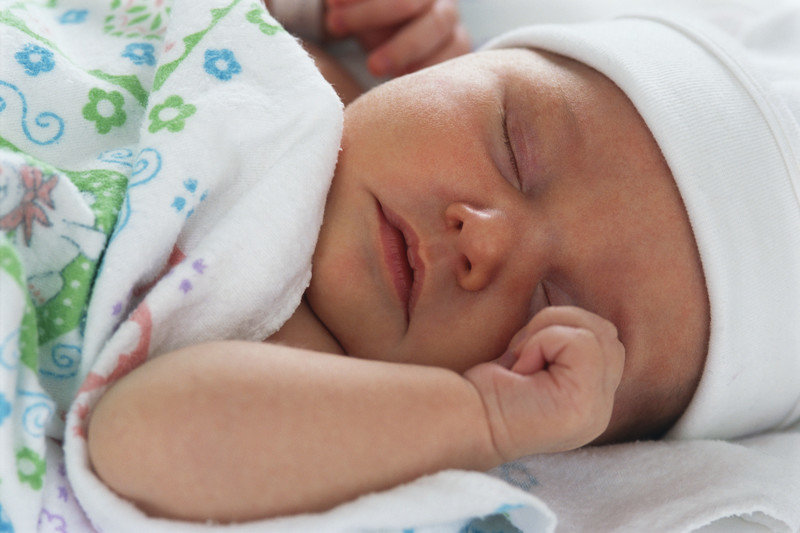
No, it's not because they're sadists who love keeping parents up all night. It's because infants younger than 4 months lack the developmental ability to self soothe — AKA chill out on their own enough to get to sleep. "They are reliant on caregivers to help them get to sleep," says Dr. Blanchard. Later on, babies can learn to calm down hugging "transitional objects" like blankets or stuffed animals instead of you.
More from The Stir: Sleep Training: Dos & Don'ts of Letting Your Baby 'Cry It Out'
Why Do They Usually Say 'Dada' Before 'Mama'?

It breaks every mother's heart, but it's not that babies love Daddy more. In fact, babies don't even know what they're saying — they have no grasp that "dada" may be daddy and "mama" mommy. "They're just babbling randomly," says Dr. Blanchard. "And 'dada' comes out first simply because it's easier to say."
Why Do Babies Love Peek-a-Boo?
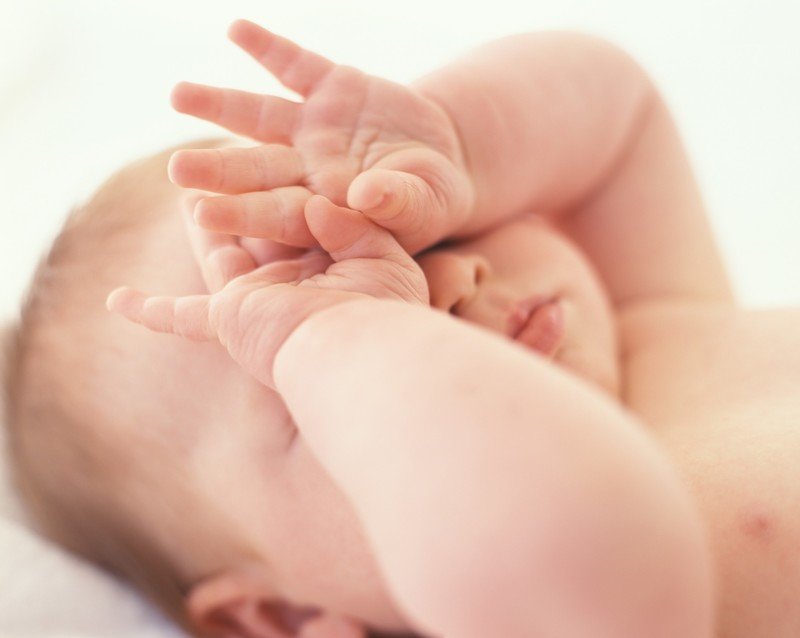
Most babies start to love peek-a-boo between 5-6 months of age. "This is because this is the age when babies start to develop 'object permanence,' the understanding that an object continues to exist even when it can't be seen," explains Dr. Blanchard. So by playing peek-a-boo, you're helping your baby confirm his suspicions — i.e., Hmmm, I can't see mom's face, but I'm pretty sure she's still here. And … there she is! Yay!
Why Do Babies Have Such Jerky Movements?
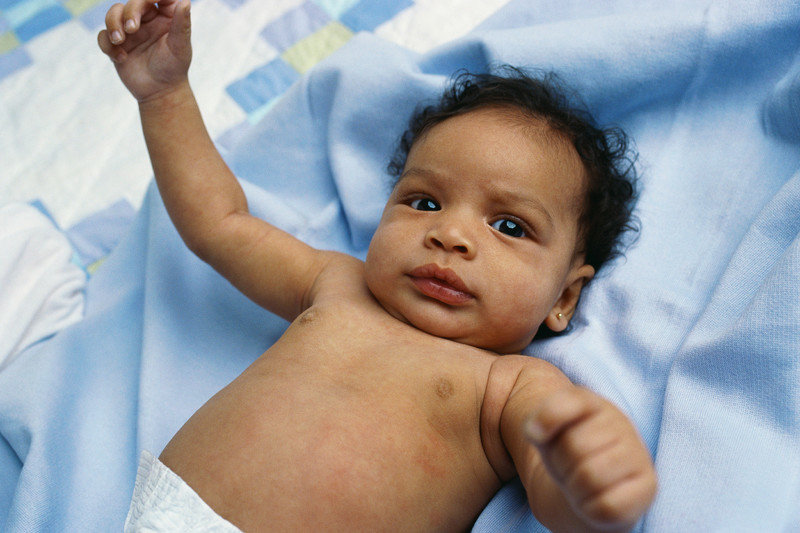
Ever notice how babies' arms tremble even if they're just reaching for something two inches in front of them? That's actually normal. "Their nervous systems are immature and they lack the motor control to have purposeful movements," says Dr. Blanchard. Your baby will begin to reign in this spazziness starting at 3 months, but until then, don't expect them to hold on to that rattle.
Why Are Babies Born Bowlegged?
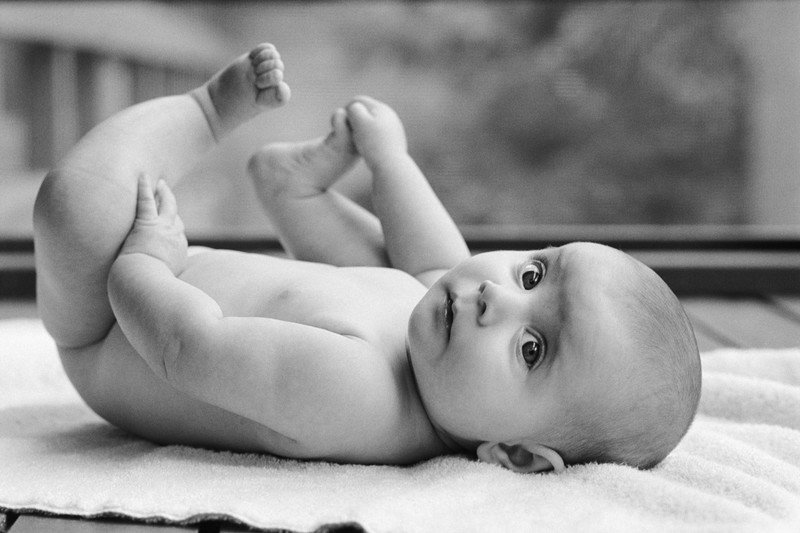
This has to do with mom and the limited space in her belly. "There's just not enough room in there for the baby's legs to be out straight, so they're folded," explains Dr. Blanchard. In other words, you should thank your stars that babies' legs aren't born straight since you'd have to use a wheelbarrow to cart your tummy around. And don't worry, those legs will straighten out by the time your baby begins to walk.
Why Do Babies Startle Awake?
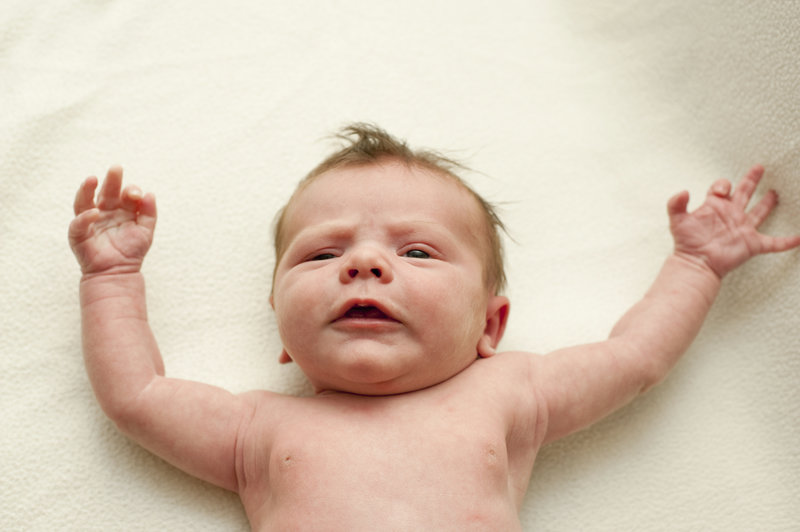
Baby is sleeping peacefully … then out of the blue, his arms flail outward and he's awake and bawling — for no good reason! But this outburst, called the "Moro reflex," is inborn — meaning baby can't help it — and has a certain logic to it.
When baby's limbs move too quickly, even when sleeping, this can create a sensation that the baby is falling. So baby wakes up and is understandably upset — which is a good thing (believe it or not).
"Having an appropriate startle reflex is actually a sign of a normal infant neurological system," says Dr. Blanchard. To curb this reflex, swaddle your baby so the arms can't flail, or just wait it out until 4 months, when the Moro reflex should fade.
More from The Stir: How to Swaddle a Baby in 4 Easy Steps (PHOTOS)
Why Do Babies Grab Your Finger With an Iron Grip?
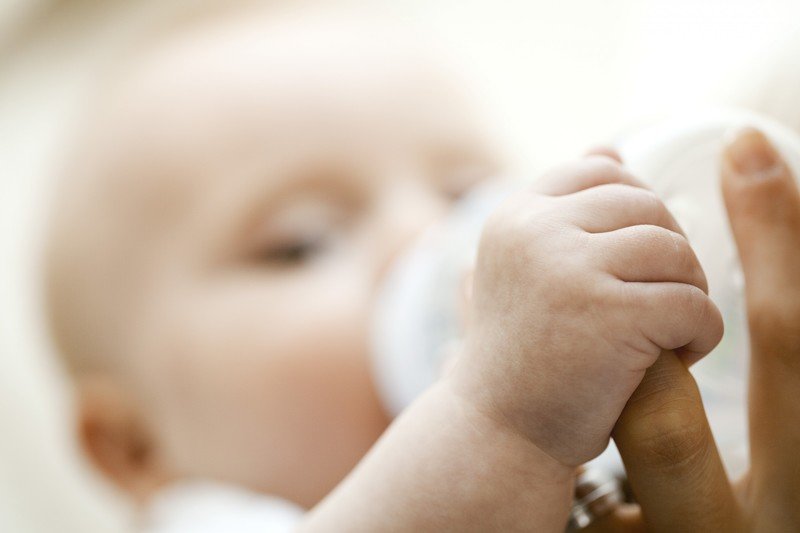
This is called (surprise!) the grasping reflex, and it's totally innate — meaning baby can't help but do it — up until 3-4 months. The reason for its existence is unknown, although some theorize it helps babies learn how to grab things on purpose later on, once the reflect fades. Because we all know kids love to grab anything they can!
Why Do Older Babies Have Trouble With Strangers?
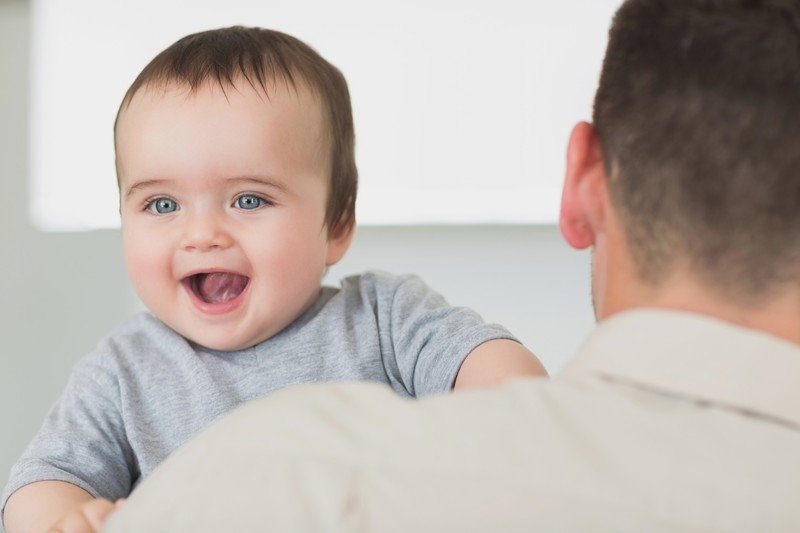
You've always handed your baby over to strangers no problem — he just goos and gahs and seems content sitting on any old person's lap, from Aunt Martha to Santa Claus. Yet starting around 4-5 months, "stranger anxiety" kicks in and makes your baby highly suspicious of newcomers, followed around 7-8 months by "separation anxiety" where baby clings to you for dear life. So if Aunt Moira is insulted when your little one starts screaming when you try to hand him over, try to assure her that it's not her, it's him — and that his leeriness should die down by the time he's 2 years old.
More from The Stir: The Clingy Baby Phase: How Long Did It Last?
Why Are Babies So Helpless When They're Born?

Think about it: newborn calves can walk within hours of birth; newborn fish can swim straight out of their egg sack. Human babies, on the other hand, can't walk, talk, or frankly fend for themselves for years. What's up with that? The prevailing theory of the past was that the baby's head had to be small enough to fit through the mother's pelvis.
But a more popular theory today is that our amazing brains are to blame. "The human baby's brain develops at such an astonishing speed, the mother's metabolic rate simply can't support such growth in utero," says Cheryl Wu, MD, a pediatrician in New York. In other words, for reasons of self preservation, mom gives birth to a half-baked brain, which continues to develop outside the womb for many years without taxing mom too much (although we have to admit, it's still very taxing).
More from The Stir: 12 Ways to Make Your Baby Smart




